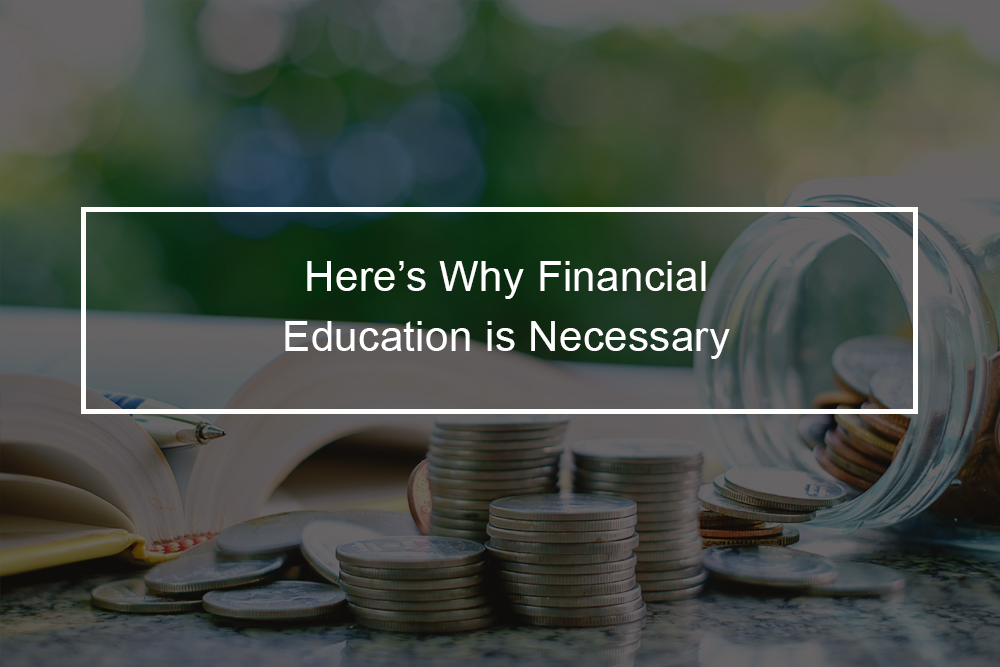
The profound underlying principle is that if even one person misses learning these fundamentally necessary skills for a successful life, the unfortunate effect might be as severe as lifelong poverty for many generations to come.
When numerous financial education programs are operating outside schools, why do we need to teach financial literacy in schools? The answer lies in the idea that not all students will have access to, nor will all students attend the enrichment programs outside of their prescribed school curriculum. Think of it this way: music and art classes, even though they are not as important as financial literacy skills they are provided in most communities; however, only a handful of parents enroll their kids in such classes.
What is financial literacy?
Financial literacy courses teach students the basics of money management: giving, investing, debt, saving, and budgeting. That knowledge forms the foundation for students to establish strong money habits early on and avoid many of the mistakes that cause lifelong money struggles.
Why is financial education important?
Researches on financial education have discovered that millennials are not well equipped to handle their finances. Millennials’ spending trend stands in stark contrast to their predecessors; they are keen to splash out on experiences and do not take the concept of big commitment purchases seriously- for instance, houses. Millennial spending behavior indicates the disparity of their knowledge and attitude towards budgeting.
Researchers made excessive use of a survey recording self-reported savings rates, as measured by the amount of unspent take-money pay and voluntary deferrals (such as 401(k) plan), and the state the respondent went to high school in. This is used to evaluate whether a state-mandated financial education curriculum affects the amount individuals save. According to the National Bureau of Economic Research, those joining high school five years after the adoption of the mandate had a savings rate of 1.5% points higher than for students not exposed to a mandate.
A nationwide telephone survey asking if the individual had taken a business or economics course at high school and if they were banked discovered a statistically significant association between the level of high school financial education and being banked.
A lack of financial literacy in the school curriculum has undoubtedly placed many young people under the illusion that earning a lot of money indicates that you will never be in any debt, together with general unwillingness to make sacrifices for the sake of budgeting. One survey discovered that forty-two percent of teenagers said they wanted their parents to talk more about finances, and a staggering thirty-two percent said that they knew how interest and credit card worked. Teenage years are pivotal points in learning, so why is financial literacy being justify out?
Reasons why financial literacy should be taught in schools
Here are five reasons why personal finance is a necessary life skill that must be taught in schools.
Money touches everything
At eighteen years old, kids are thrust into a world where every step they take from graduation to retirement will be directly affected by their financial knowledge and money management skills. Buying your first house, career decisions, having children, getting married- finances all play a massive role in each of these life events. And it is not just the major ones; finance is a part of our daily life. Whether it is what we buy, where we eat, negotiating prices, or going out with friends, we are faced with financial decisions on a daily basis. Millennials lack the education and experience to make these decisions- small or big.
Most of Americans want personal finance taught in schools
When it comes to financial literacy in schools, most adults feel that more should be done to help students get a good start. A current Credit Karma Qualtrics survey discovered that sixty-three percent of respondents think personal finance education should be taught in schools. Although almost two-thirds of Americans are in agreement with the significance of finance in our schools, the respondents were a bit divided over when this should happen.
In spite of some debate over just how young is too young when it comes to financial education, or where that education should happen, the research shows that most Americans are in the range of putting school-sponsored personal finance education on the political agenda. More than three-quarters (seventy-seven percent) of those surveyed believe politicians should push to add financial knowledge in schools, and sixty-seven percent of those surveyed would opt to vote for a candidate who prioritizes adding mandatory personal finance literacy to the public school curriculum.
Lack of financial knowledge has painful consequences
Finances are understandably one of the leading causes of stress in adults. Everyone can associate with this stress; even the richest people have felt financial pains at one time or another. Lack of savings or debt can cause considerable hardship in a person’s life. And it does not just cause daily stress.
Financial challenges can cause bankruptcy, depression, poor health, and divorce
Almost half of Americans do not have enough cash available to fund a $400 emergency. Having a medical emergency or getting fired without any savings would be devastating. Understanding the significance of an emergency fund could prevent this.
Financial literacy leads to a healthier life
The benefits that come with having a financial education are indisputable, like:
- Promote good saving habits. Just imagine if your kid came out of college and started saving for their future immediately.
- Budgeting teaches responsibilities and awareness. If somebody has a budget that they actively manage, it pushes them to look at their spending. They know how much they have available, and this results in better spending habits.
- More money, more jobs, and less debt for good for the economy as a whole
- Smart financial decisions positively impact one’s credit score, which affects their entire life: applying for a credit card, getting a job, getting insurance, renting an apartment, signing up for their power bill, and buying a car or home. Having a good credit score indicates saving thousands and thousands of dollars in interest payments over their lifetime.
- Understanding money management results in positive attitudes and financial health around money. People’s attitudes around money can be significant in shaping their character and promotes a desire to give back.
Financial literacy courses will reach all kids
Another reason we need to teach financial literacy in school is to make sure that every child has fair access to a fundamental life skill associated with the financial effects of their lives. Splitting a financial literacy initiative from school runs the risk of educating only a section of the community in financial literacy at the same time, leaving the rest without the essential skills to succeed financially. Generally, we need to teach financial literacy in schools to produce students who are well-versed in financial issues and ready to overcome any financial challenges that they may have.
How should the curriculum be changed to incorporate financial literacy courses?
Lessons in finance differ from core subjects such as Science and English since they offer life skills which, if not learned, will be destructive as children grow older and become adults. A primary school in the UK created its bank, to combat below-average financial literacy learning. Generally, not everyone believes that school is the place for financial education. Some people believe that the duty should be on parents to teach their kids how to approach money and its real value of money and how to approach it. It is worth noting that in academics, faith schools, and private schools, it is not a compulsory part of the curriculum, so most youngsters still miss out on these courses. Most schools that do not incorporate it into the school day compartmentalize it into general citizenship lessons; however, it is arguable whether enough emphasis is placed on it.
Presently, the national curriculum covers a few areas of finance, inclusive of banking, pensions, and savings. It is still a comparatively recent introduction to schools, so not all teachers might feel confident in teaching it still due to the specialized, sophisticated nature of topics. There is also the issue of religious differences in the approach to and teaching of these finance lessons. Islamic faith followers are prohibited from using any kind of compound interest. This relates to conventional mortgages, car loans, and student loans, all of which are commonplace in most other cultures.
It can thus be difficult to introduce financial education on a global scale. Maths may feel like a prominent place to drop lessons of finance amongst existing content; however, a debate is rife as to whether subjects such as trigonometry should still deserve a place for exam papers when finance courses could take their place and offer long-lasting life skills.
Even though there is a lack of depth in financial literacy education, the subject could become mainstream in the next ten years. These skills will prove invaluable for young people as they progress in their life, and they could eventually counteract the stereotype of illiterate or financially irresponsible millennials.











